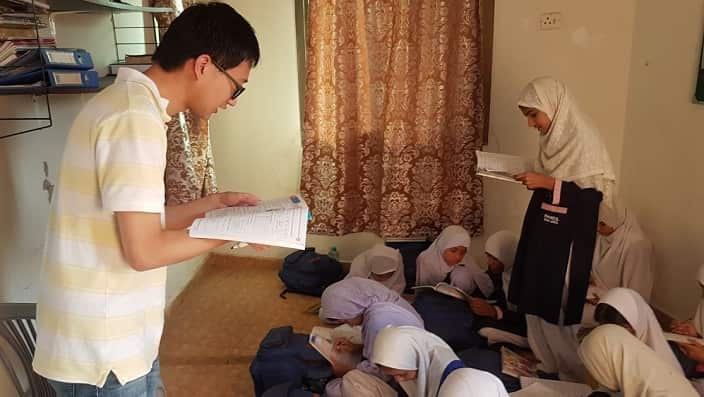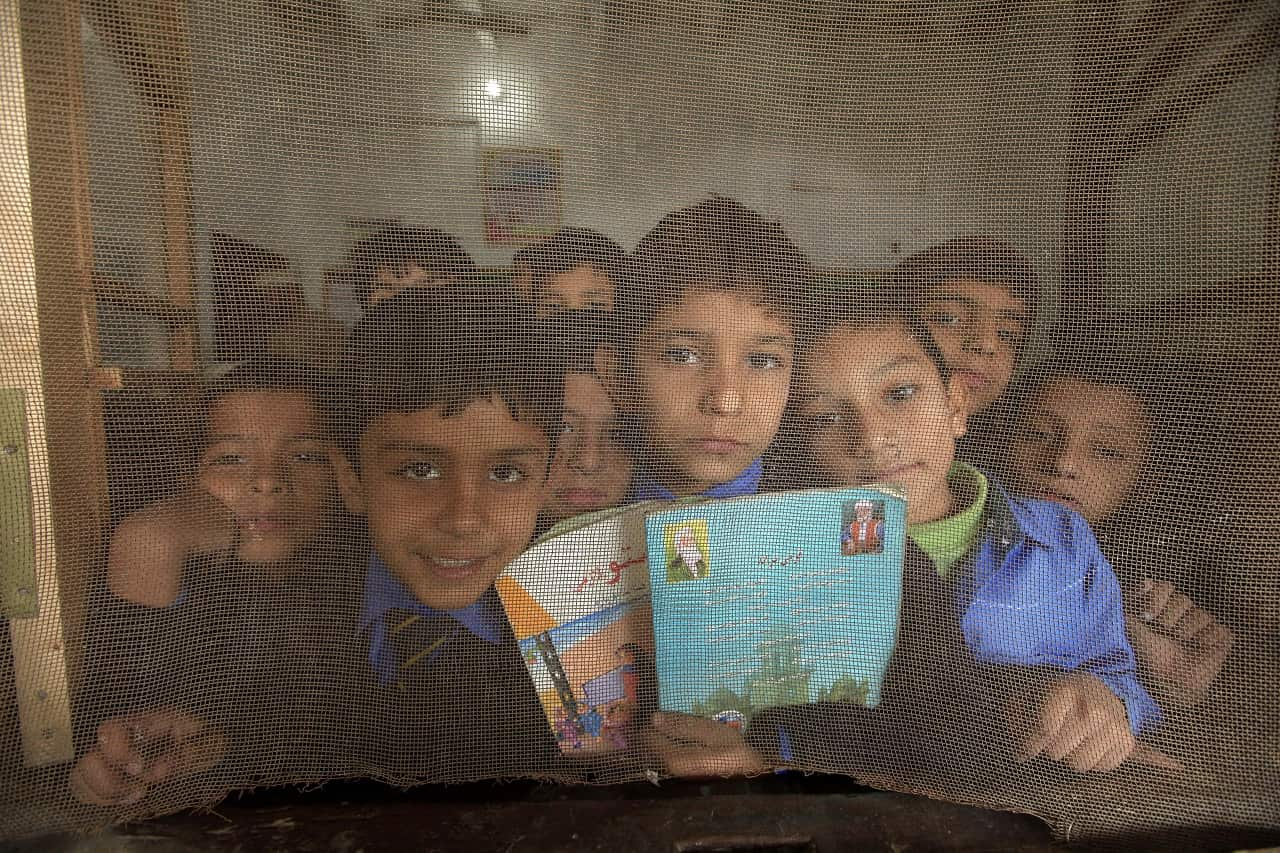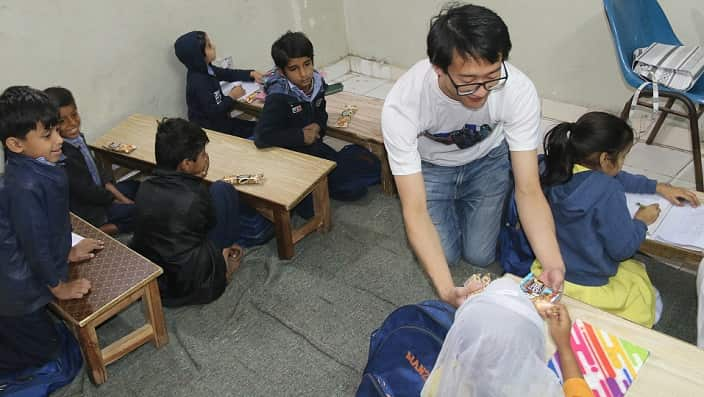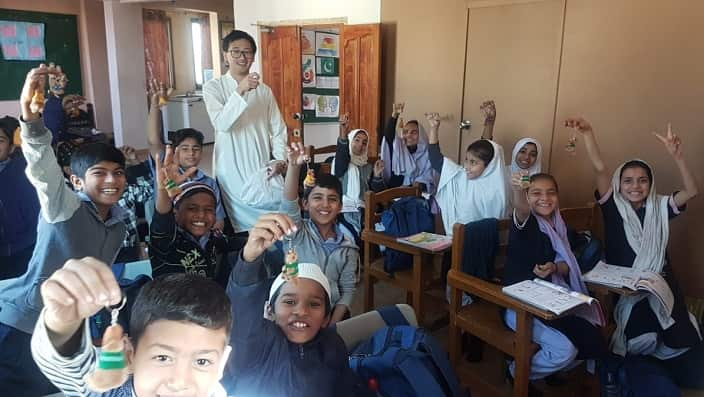It is yet another hot day and there is no electricity making it very difficult for the local children to go to their school in Raiti Lines, one of the slums in Pakistan's largest city, Karachi.
With a population of over 20 million, Karachi has one of the youngest populations in the world. But not every child in the city is able to go to school or able to acquire quality education.
A staggering 9.45 million primary level children were estimated to be out of school in Karachi in 2015, according to the latest figures by the United Nations Development Program for Pakistan.

But the children of this school in central Karachi seem happy and content, ignoring the environmental challenges to prepare not only for the school but to study with the new teacher from Australia.
It is the same situation for Martin Chia who has come all the way from Sydney to teach science and mathematics to young minds.
“I love their smiles when they come to the class; it is the best thing I get from the students," he told SBS Urdu.
“The children always want to learn more and I am always happy to answer and support them.".
Hailing from Sydney, Martin Chia is an IT auditor and works in the finance industry. On weekends, he offers tuition to children including for science, mathematics and English from Grade 2 to Grade 10.
But in 2014, Martin found a teaching project in Pakistan that made him decide to volunteer in another country.
3.6 million (19% ) of Australians aged 15 years and over are engaged in voluntary work through an organisation or group – Volunteering Australia
“The Manzil Educational Organisation was looking for a volunteer to teach at their school in Karachi. Similarly, I was looking for a volunteer project. So we met and were very happy with each other.
“In December 2014, I went to Pakistan to teach the children in Karachi. I wanted to contribute something and I thought I could contribute there [in Pakistan]," he said.
However, it was not easy for the Australian volunteer as being a full-time teacher meant living at the school in a small room with electricity only available for a few hours in a day.

Even communication was a major barrier. In Pakistan, the national language is Urdu while he spoke only English.
“It was very funny in the beginning. For example, once I was showing the kids some images and they kept on saying – ugly photo, ugly photo. For me, it was quite confusing until someone explained that ‘ugly’ meant ‘next’ in Urdu.”
But he soon learned to speak a bit of Urdu to improve communication with the students.
“I learned a few phrases to communicate basic things which were really helpful. There were still some confusing words for me – for example, ‘murghiyan’ means chicken in Urdu, while ‘murgiya’ means dead.”
Although challenging at times, he says his experience is an unforgettable one.
“On the last day [of my first visit] I cried because of the love and care I received from the kids and the school employees.
“I felt as it they made me the most important person on the planet.”
Since then Martin has travelled to Pakistan every year and has taught the kids, some of whom have already passed with flying colours.
Martin says he really liked South Asian food and loved the rice dish commonly known as ‘biryani.’
“I ate lentils (daal) and rice dish (biryani) most of the time. The people there were so welcoming. Even though there were kids from humble backgrounds; but they made sure that I am always welcomed.
“The kids gave me food and drink, even though they had very little [for themselves].
Teaching kids in a 'kind way'.
“What they learn in school will set them up for life," says Martin.
"The way they solve problems in school will ensure that they are able to solve problems in the world when they go out there.
In his latest volunteer visit, he stayed for two months teaching in Karachi but he also travelled to other cities and visited iconic sites.
“So every morning, I used to teach for a few hours and then take a break for lunch for a few hours. I used to hang out with the school employees. They are lovely and they always take care of me.
“Also, I visited several places including Quad-e-Azam Mausoleum, Air Force Museum and Maritime Museum in Karachi while also travelled to Lahore and Islamabad.”

Cultural differences
Martin says that while there were some differences, he didn’t find any major change there.
“What makes us human is that a lot of us have similarities, so I did not feel that much of a cultural shock. I will go back again in December later this year for another two months.
“The students make me feel really special and I think I can contribute something to them."
“In terms of the connection that I have with the children and the community, that is more than enough and what I deserve already.
